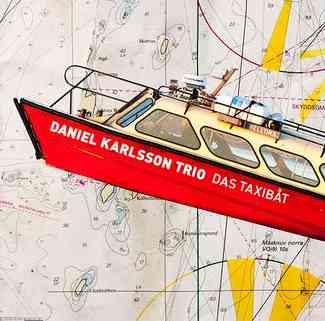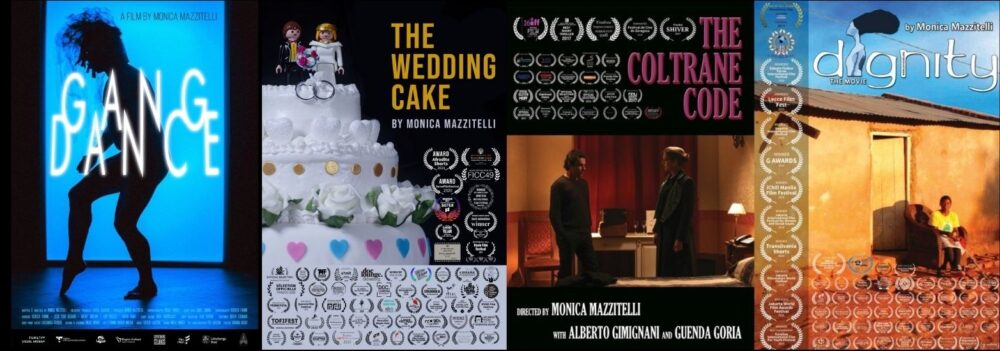
Authoritative, inspired, virtuous, with an attitude. An album finally signed with his name after a long and bright career in the Scandinavian jazz that matters: with Oddjob, one of the most innovative Scandinavian bands of the last decade, and with Magnus Öström (Esbjörn Svensson Trio) for the spectacular album “Searching for Jupiter” [described here]. Karlsson’s career began very early and before the age of 30 he has already won the Swedish Grammy for Oddjob’s debut album; two years later he was awarded with the Swedish “Nobel” for jazz music, winning the “Swedish Jazz Musician of the Year Award”, with which he financed his first solo work, released under the name of Pan-Pan. There hasn’t been an interruption to his career before or after, in fact he has been involved in dozens of other projects with Scandinavian and international stars like Nils Landgren, Ernie Watts, Peter Erskine and Till Brönner.
So, finally his new CD is released in September 2013, with a classical trio line-up (piano, double bass and drums) and yet away from the idea of standards for many reasons, starting with Karlsson’s authoritative and modern compositions, that are unconstrained and original, even when they are tributes to other musicians, as we shall see. Even though Karlsson’s talent and flair have certainly not been restrained so far, you get the feeling that this pianist has nevertheless accumulated a large thrust of expression and that once he was free to vent his creation, it was difficult to contain it. “Das Taxibåt” is an album full of variations and inspirations, filtered through a highly rhythmic and percussive pianism rather than a melodic or ethereal one. Suffused and elegiac moments are not missing, but what makes his touch recognizable among others is his impetuous and pronounced approach to the piano keyboard, that is amplified and fused to the rhythmic section: double bassist Kristian Lind and drummer Fredrik Rundqvist; they are skilful to enhance Karlsson’s personality, making his sound all the more recognizable and original.
Ten songs with a wide range of variations of inspiration and metrics, starting with a dynamic and elastic title track that sets this album’s style code: we immediately hear Karlsson’s strong flair. In addition to the piano in this song he also wonderfully plays organ and keyboards, with a dash of electronics imperceptibly weaved in. The second track, the softest in the album, contains in the title the image it conveys: “Cowboy Song” sounds like a slow-paced, almost tired, of cowboys riding on horseback, at sunset. It is divided into three movements, a pure piano intro that is repeated in the second session with the other instruments, while the third part begins with a celestial organ to end percussive and insistent, with one of the best drum parts. The third song’s title is some kind of a pun: one of the most famous Swedish dishes is called Janssons Frestelse, i.e. Jansson's Temptation, and its name is slightly amended to read “Johansson’s Temptation”, to give a tribute to the famous Swedish pianist Jan Johansson. Even though he is not too well known abroad (he is however, the author of the Pippi Longstocking song!), all Swedish pianists recognize him as a major innovator of the genre since the sixties and acknowledge his strong influence, including Esbjörn Svensson. The piano is so crisp and percussive in this track, that it duets with the drums, while Karlsson’s right hand builds articulate improvisations that drag into an irresistible finale.
Another declared tribute for the fourth track “Bobo's Temptation”, dedicated to Bobo Stenson, in which the magically meditative piano is surrounded by Rundqvist’s beautiful inventions and interesting sounds. On the other hand the fifth track, “Sergio Giorgini” (name of non-existent designer mentioned in the TV show “The Office”) probably owes its title to the extreme elegance and refinement of his gait, like that of a cat in the dark, with icy drops from the piano.
“Christney 's Bass Lesson” begins and ends with a lovely groove to dance to, both for Lind’s double bass and Rundqvist’s lovely work on the drums, using the tip of the drumsticks, with a long central improvisation. You also feel like wiggling on the next track , “Positiv Man”, where the piano seems to climb and descend on its octaves upon a soft and elegant bass line, as if undecided which way to go. “Safir” is a precious stone set at the end of the album, the most melancholy and Svenssonian track.
The penultimate track, “Quickly”, is more of a jazz fusion style, with a nice groove from start to finish upon which Karlsson builds nice improvisation on the higher octaves. A similar pattern goes also for the next and final track of the album, “Gone Fishing”. A solid rhythmic base supports all of the piano variations, accelerations and dissonance, making it one of the record’s least immediate tracks.
Daniel, finally a work that you are the master of with your own name: What has prevented you from working on this album before and how did you choose your musicians?
I have not felt much need of a situation where I would be the main focus, as I have been able to exert my creativity thru Oddjob. I selected my musicians because I liked them in many ways: first of all their playing, sound and musical orientation, obviously, but also because of their personalities: it is important when you go on tour.
The reason for your “tributes” to Johansson and Stenson: is it more stylistic or sentimental?
Bobo Stensson and Jan Johansson are the two Swedish pianists that have influenced me most. In fact I believe I am very Swedish in my way of playing music, and this is why I wanted to focus on them.
By playing with Magnus Öström you have in a sense “replaced” Esbjörn Svensson, the most influential Swedish jazz pianist in recent years. Have you thought about it in that sense? If you have, did the idea make you feel powerful, or did it make you feel somehow nervous?
I don’t think anyone can replace Esbjörn. He was one of a kind, and I admire him and what his Trio did immensely. I am also aware that I am bound to be compared with him now and in the future. Furthermore, we have worked in the same environment, studied with the same teachers and learned in the same band. Esbjörn was a worldwide artist, and I would have been the first to follow his developments with curiosity, had he not passed away in that tragic accident.
And yes! I feel he gives me strength as a pianist.
He was able to make so many things possible.
“Das Taxibåt”, Brus & Knaster, 2013
1. Das Taxibåt
2. Cowboy Song
3. Johansson's Temptation
4. Bobo's Temptation
5. Sergio Giorgini
6. Christney's Bass Lesson
7. Positiv Man
8. Safir
9. Quicky
10. Gone Fishing
Daniel Karlsson: piano, organ , keyboards
Kristian Lind: double bass
Fredrik Rundqvist: drums
